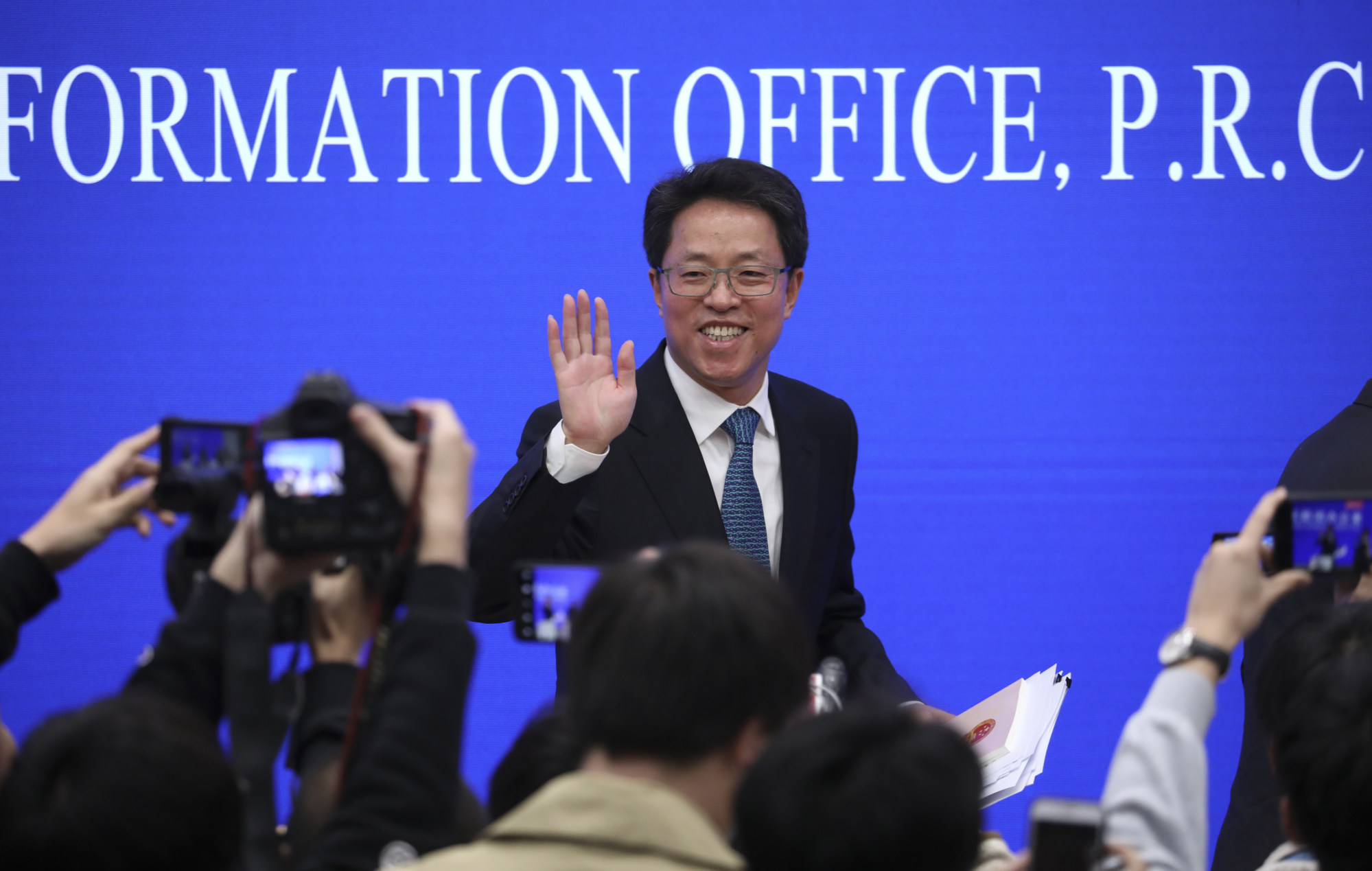
China’s ‘two sessions’ 2024: nation’s top political advisory body signals Greater Bay Area on the agenda as Hong Kong delegates head to Beijing
- Spokesman for Chinese People’s Political Consultative Conference takes questions on bay area at press conference, considered signal of what will be on agenda for meetings
- Some Hong Kong delegates meet top Beijing official Xia Baolong day before political advisory body holds first meeting on Monday
“Over the past five years, the [bay area] has become one of the regions with the highest degree of openness and the strongest economic vitality in China,” Liu Jieyi, a spokesman for the Chinese People’s Political Consultative Conference (CPPCC) told a press conference on Sunday.
The two sessions, or lianghui, refers to the annual meetings of the CPPCC and the National People’s Congress, the country’s legislature, which are set to begin on Monday and Tuesday, respectively.
Liu, a former top diplomat and Taiwan affairs chief, said the CPPCC would make the bay area’s development a priority in its National Committee’s overall supervision approach for the country’s latest five-year plan.
The bay area refers to Beijing’s scheme to integrate Hong Kong, Macau and nine mainland Chinese cities into an economic powerhouse.
‘Two sessions’ delegates push to keep Hong Kong unique, help mainland firms
Commentators generally consider the spokesperson’s pick of the questions from media outlets at the press conference ahead of the two sessions to be the first signal for the agendas up for discussion.
At the event, Liu cited Chinese President Xi Jinping’s call to turn the bay area into “a strategic fulcrum for the new development pattern, a demonstration site for high-quality development, and a leader in Chinese-style modernisation”.
The spokesman noted the region’s total economic output exceeded 13 trillion yuan (US$1.8 trillion), and it generated the most patents out of the world’s four major bay areas, making it one of the most promising for growth globally.
Liu also shared more figures as he touted the bay area’s success, with Hong Kong and Macau welcoming about 2.52 million visitors from the mainland over the Lunar New Year holiday.
About 2.49 million Hong Kong and Macau residents also travelled north during the break, he added.
China’s state media in positive economic spin mode in lead-up to ‘two sessions’
Passenger and vehicle flow at the Hong Kong-Zhuhai-Macau Bridge had also broken records, Liu said, describing the situation as a sign of the bay area’s “smooth traffic, prosperous people and growing wealth”.
Some of the more than 200 politicians and tycoons from Hong Kong descending on Beijing in the afternoon for the two sessions took part in a meeting with top mainland officials in the evening, the Post learned.
A delegate, who asked not to be named, said Hong Kong and Macau Affairs Office (HKMAO) director Xia Baolong met some of the city’s CPPCC deputies for about 10 minutes.
“It was more or less a courtesy call. He mainly talked about his visit to Hong Kong last week,” the delegate added. “Xia said he was impressed by the new district council system. He also said some district council members were young and energetic.”

A day earlier, state broadcaster CCTV announced Xia’s predecessor at HKMAO, Zhang Xiaoming, had been removed from the top political advisory body.
The broadcaster did not provide the reason behind the removal of the 60-year-old minister-level official, who is below the usual retirement age.
Xia succeeded Zhang in 2020 to head the HKMAO, which was overhauled last year to report directly to the Chinese Communist Party. Zhang led Beijing’s liaison office in Hong Kong from 2012 to 2017, and then served as the head of the HKMAO for 2½ years.
Asked whether Zhang’s stepping down was related to his role as the head of the HKMAO in 2019, when anti-government protests rocked the city, NPC delegate Chan Yung said: “It’s among a series of normal reshuffles that demonstrate the central government’s comprehensive considerations.”
Lawmaker urges China to safeguard tech production chain for a quantum edge
“We respect and trust the decision,” said Starry Lee Wai-king, Hong Kong’s sole member of the NPC Standing Committee, without elaborating.
Priscilla Leung Mei-fun, an NPC member and Hong Kong lawmaker, thanked Zhang for his contribution to the city and said there could be “other work arrangements” for him but she did not want to speculate.
A pro-establishment heavyweight said on condition of anonymity that the bloc was reminded on Saturday to “refrain from commenting” on any reshuffles involving top officials during the annual sessions in Beijing.
As the pro-Beijing loyalists from Hong Kong left for the capital, many called for improved policies to attract more mainland tourists to the city.
Among the popular proposals is to raise the duty-free shopping limit for mainland tourists from 5,000 yuan to 30,000 yuan. This has not changed in almost three decades.
This was jointly suggested by delegates from the city’s major parties – the Democratic Alliance for the Betterment and Progress of Hong Kong, the Hong Kong Federation of Trade Unions and the Liberal Party.
The ‘two sessions’: what to watch for during China’s biggest political event of the year
The Liberal Party’s CPPCC member Michael Lee Chun-keung also proposed creating a “Greater Bay Area Identity Card” as an official identification document for all 86 million people in the area to allow for “more seamless” travel across the border.
He said that if electronic health records could be stored in the card, it would encourage more mainlanders to travel to Hong Kong for medical and healthcare services.
Stanley Ng Chau-pei, an NPC deputy and president of the trade unions federation, said he hoped Beijing would revive a multiple-entry visa scheme for Shenzhen residents and expand it to cover more mainland cities.
Additional reporting by Ng Kang-chung


